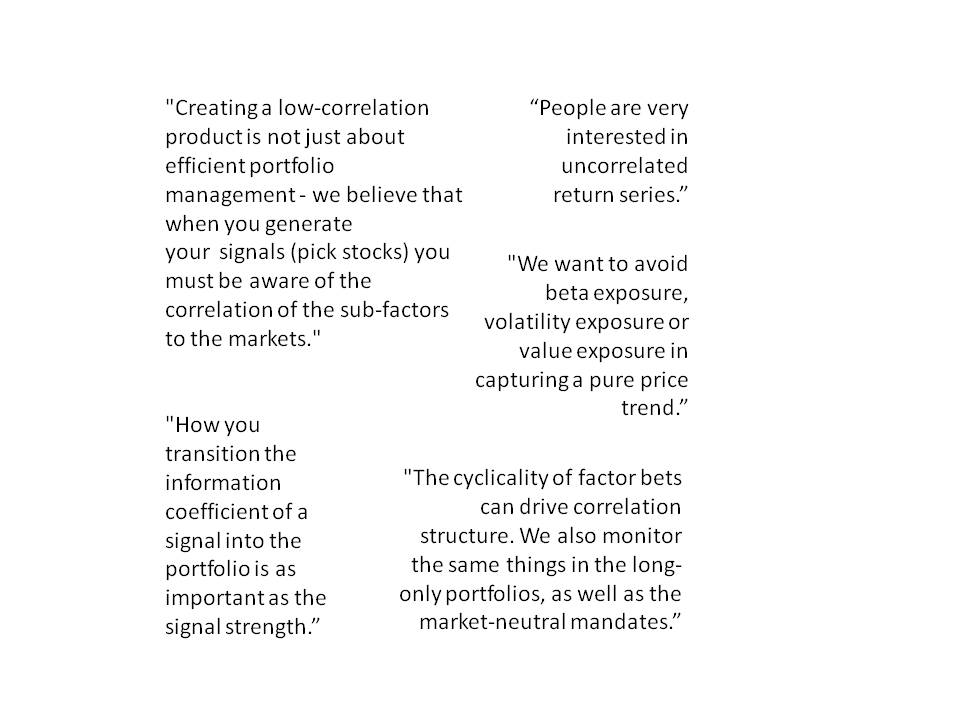The first Hedge Fund Insight Podcast is an exploration with Dr. Ian Heslop of how his team operates and it explores some of the structural decisions they have made to manage capital quantitatively at Old Mutual Asset Managers (OMAM). Ian Heslop is Head of Quantitative Strategies, running a team of five, and he is co-Fund Manager of, amongst other funds, the Old Mutual Global Equity Absolute Return Fund.
The podcast is annotated OMAM Quants v 2 because the efforts of OMAM in this area over the last four years are a second coming. Having run over a billion dollars in a quantitatively-run global equity hedge fund 6 years ago, disappointing returns and then redemptions ran down the externally provided capital and caused a re-think about what they were doing.
The consequence is a much improved process, and on the back of it, a fund which is gathering attention as well as some awards (Global Equity Absolute Return Fund).
By clicking the link below you can either download or play the podcast in the window which pops up.
Contents:
Introduction ~ Team and structure
10.00 Portfolio structure of market -neutral funds
17.50 The factor models – a dynamic valuation factor with a “quality” moderator – a conceptual shift to recognising time-varying returns by factor
21.00 Long term distortions post the Tech Bubble
24.00 Regime Shift Monitoring – adapting to changing risk appetite and persistence of momentum
26.00 Forecasting horizon and optimization horizon – avoiding optimizing for too short a forecast period
28.05 Price-driven strategies – trends and reversals
35.15 Contributions of position sizing v signal generation
37.00 Consistency of return to be delivered by multiple strategies
39.00 Sustainable growth factor – mis-priced growth companies
44.50 Analysts earnings revisions – beyond autocorrelation?
49.15 A company management factor model – impacts of management on the balance sheet – capital utilization and shareholder value
53.40 Research at OMAM – A jointly managed process
59.40 Why is the Global Equity UCITS fund working now?

